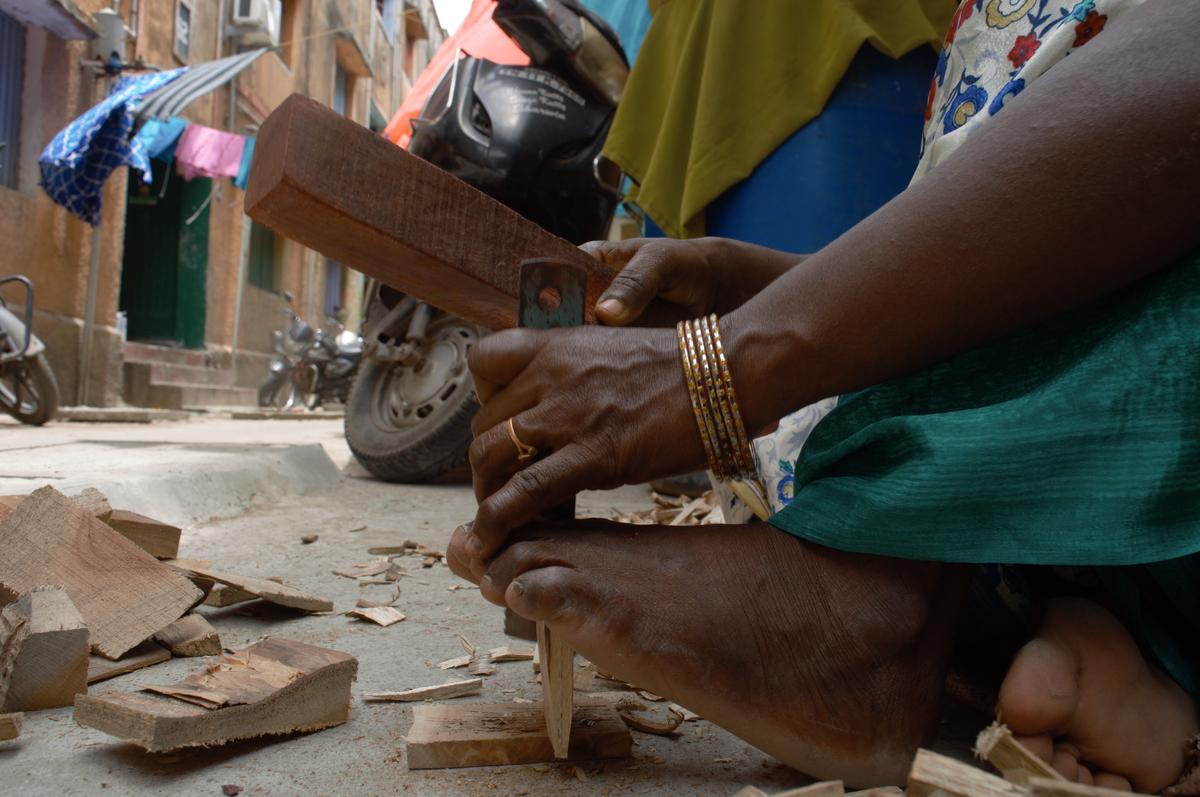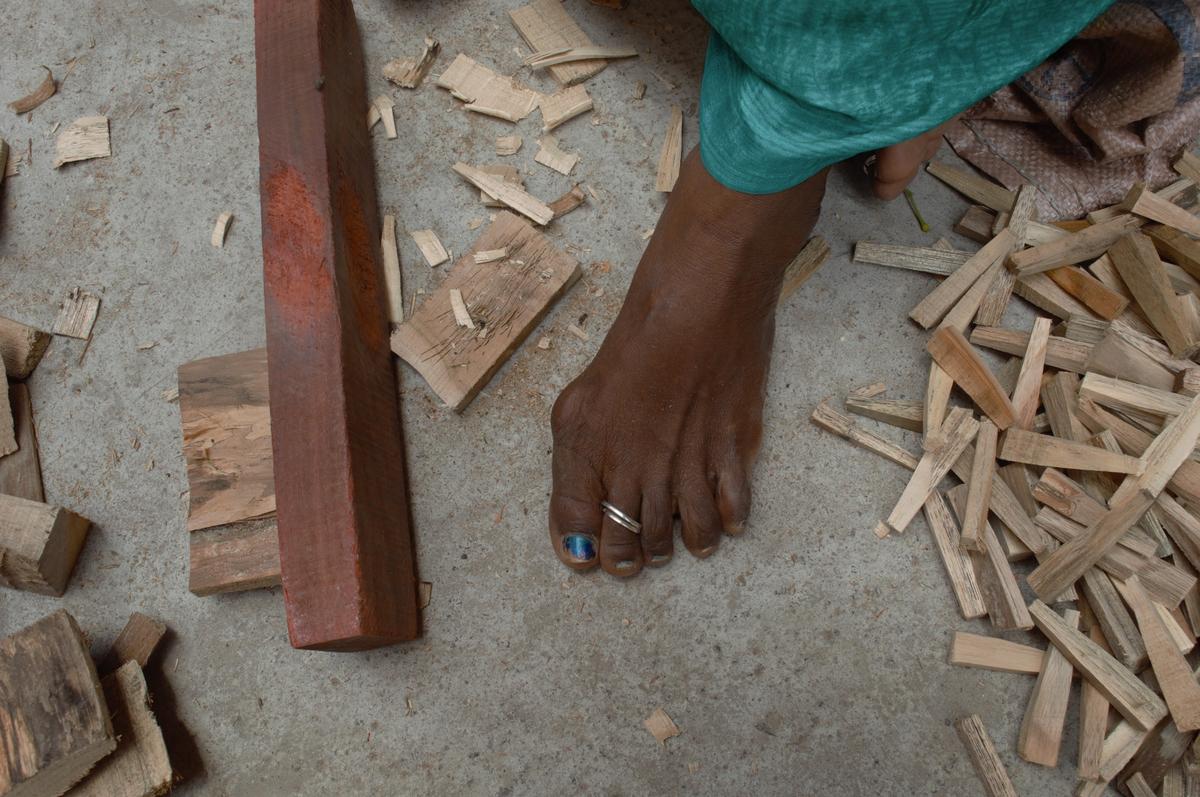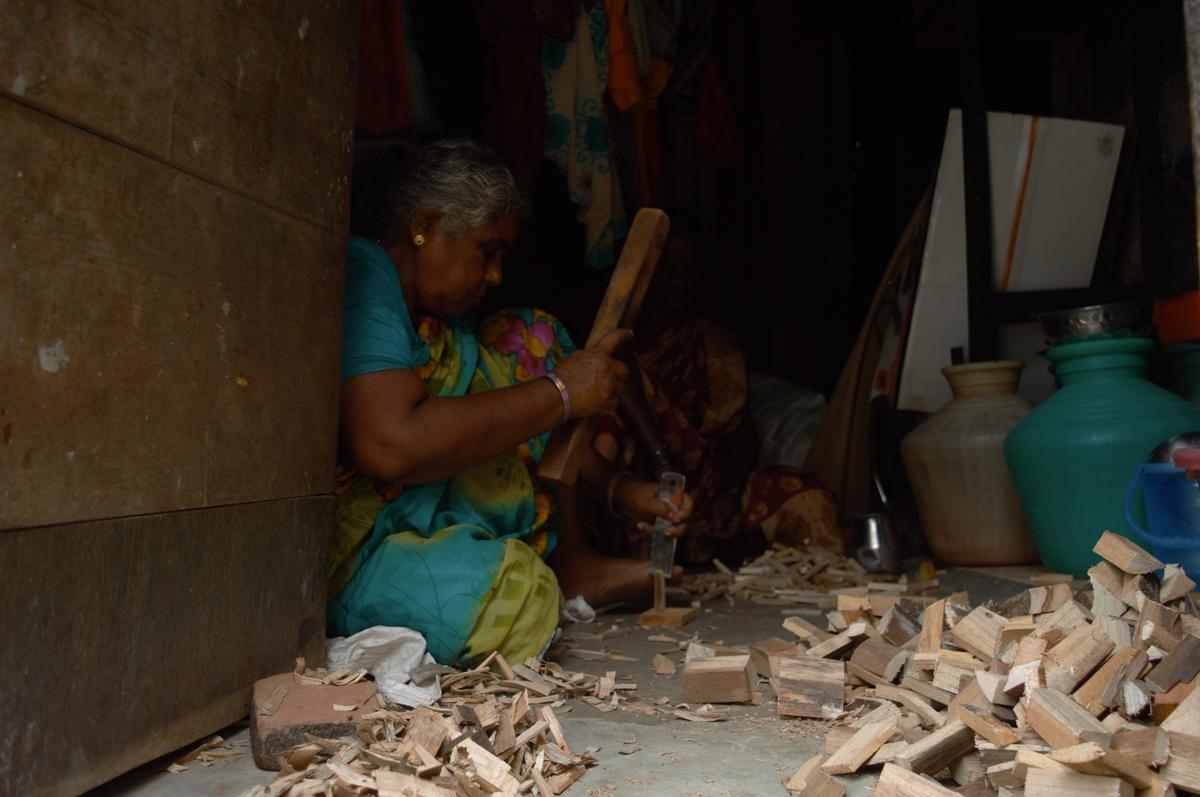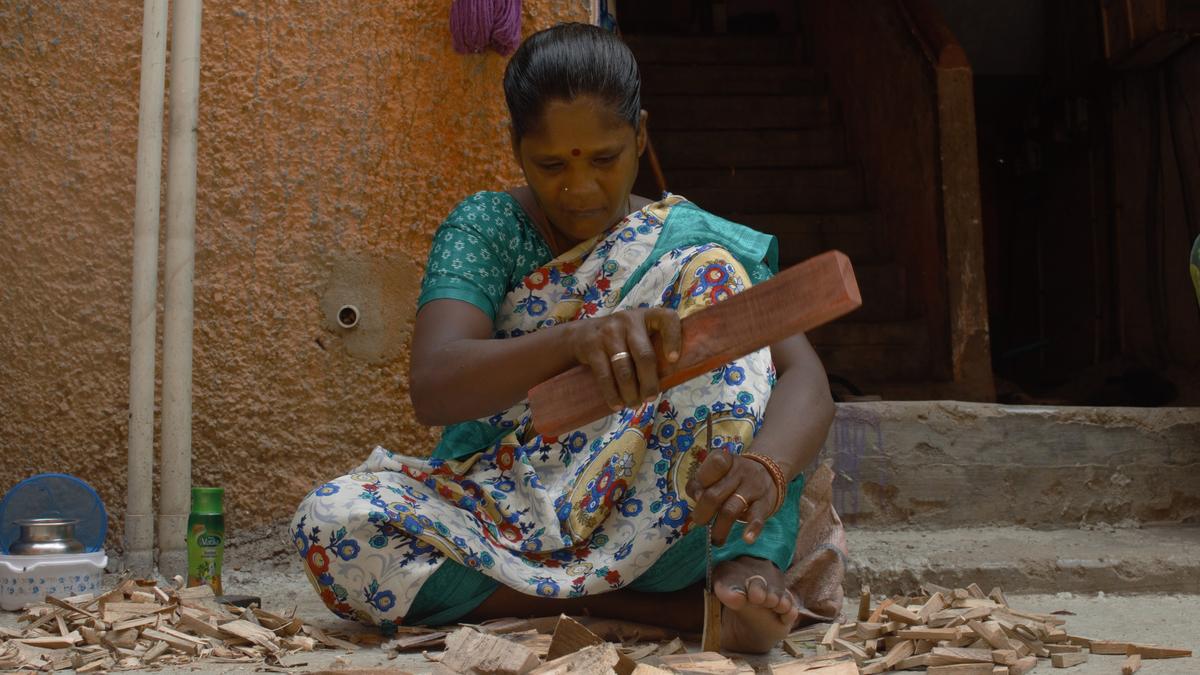There are over 50 women engaged in the task at Sathyamoorthy Nagar
| Photo Credit: N Sakthivel
The synchronised ‘tick, tick, tick’ of a hammer hitting wood greets us the moment we enter Sathyamoorthy Nagar. Children who have just returned from school run about; a baby cries nearby; a scooter veers into the street: all to this consistent background score.
We follow the sound to trace its source. Through narrow lanes, we end up finding women seated in front of their houses, chopping treenails using a chisel and a block of wood. They add the slivers to a steadily-growing pile by their feet. This mountain of treenails will be supplied to hardware stores in the city, aiding carpenters, plumbers and those involved in electrical work. Every wooden wedge counts.
“My mother would chop kattai after sending us to school, once all her chores at home were done,” says M Manimegalai, head bent in concentration as she works. She looks up briefly, adding: “I learnt this from her, and have been chopping wood from the time I was 12.” The 33-year-old drags a sack of wooden blocks to her doorstep every morning at around 11am. She then arranges a pedestal fan opposite to her, and settles down, hammering away at the blocks.

A kilogram of treenails fetches the women ₹50
| Photo Credit:
N Sakthivel
“I see this as an office job,” she says. “I take short breaks in between; fix targets, and wrap up by 5pm to tend to my two children.” A kilogram of treenails fetches the women ₹50, and Manimegalai chops around eight kilograms a day. Of the ₹400 she makes, she will have to shell out ₹200 for the wood that she sources from timber dealers in the city.
There are over 50 women engaged in the task at Sathyamoorthy Nagar alone. Others from the nearby JJ Nagar also join them.
N Sakthivel from Vyasai Thozhargal, a movement that consists of youngsters striving for change, has been documenting the day-to-day of these women for over two years. “I grew up surrounded by women chopping kuchi,” says the 30-year-old documentary photographer, adding that his mother too was involved in this line of work when he was in school. “After children left for school and men went to work, the women would come to sit outside to chop,” he recalls.

How years of chopping treenails has affected the feet
| Photo Credit:
N Sakthivel
He adds that the women source machine-cut wooden cubes from local dealers, and work based on order. “Many women from Vyasarpadi also work as house help in places such as Adyar, Nungambakkam, and MRC Nagar; as helpers at the Stanley hospital, and also sell flowers across the city,” he points out. But some of them prefer to work at home crafting treenails, owing to the freedom the job provides.
L Gomathi has been involved in chopping treenails since she was 10. “My father was an alcoholic, and my mother had to raise five children by herself. I had to drop out of school to give her a hand,” says the 49-year-old. Today, her husband delivers the finished pieces at wholesale hardware stores in Sowcarpet, that in turn supply to several others across Tamil Nadu.

The line of work gives women financial independence
| Photo Credit:
N Sakthivel
“The work is not easy; it affects my back,” says Gomathi. She recalls a difficult phase: the day her father broke her wooden slate when she was in class III. “He couldn’t afford to send me to school,” she says. Although Gomathi had no choice but to make peace with the situation at home, she is clear about a change in the circumstances. She is stubborn about sending her daughters to school. “One of them wants to become a teacher,” she says. When both of them turn independent working women, only then will Gomathi retire. “It’s all I think of when I chop wood, every single day.”
Despite the work being taxing, S Padmavati says she enjoys the perks. The 45-year-old can chop half a kilogram of treenails in an hour and has been at it since age 12. She points to a gold chain she is wearing and says, “I saved up for many years to buy this”. Padmavati is clear that her chisel wields power and is thankful for it. “I decide when I want to work. I forget about my problems when I work. Here, I am my own boss.”
